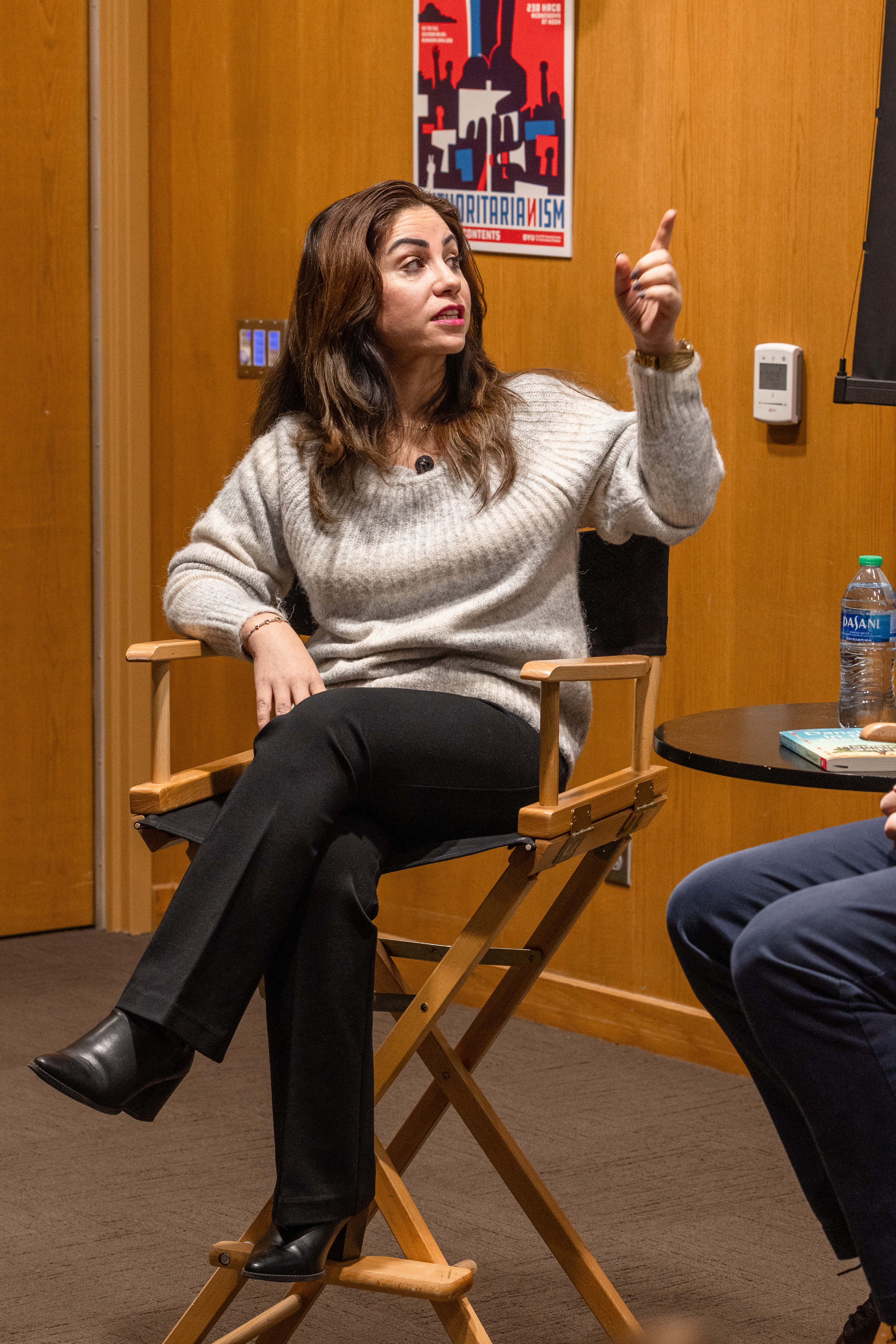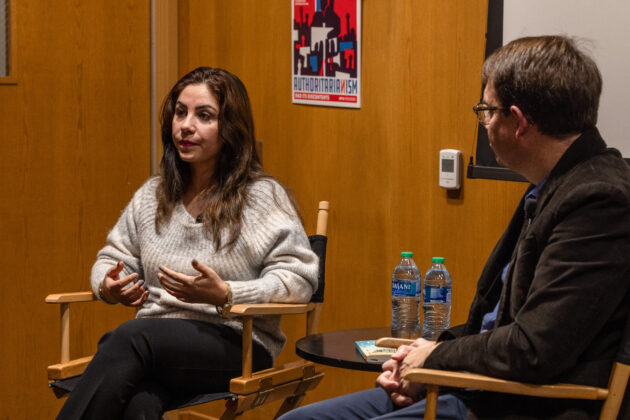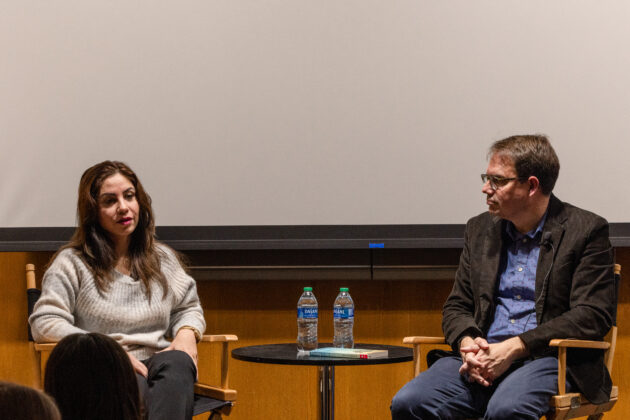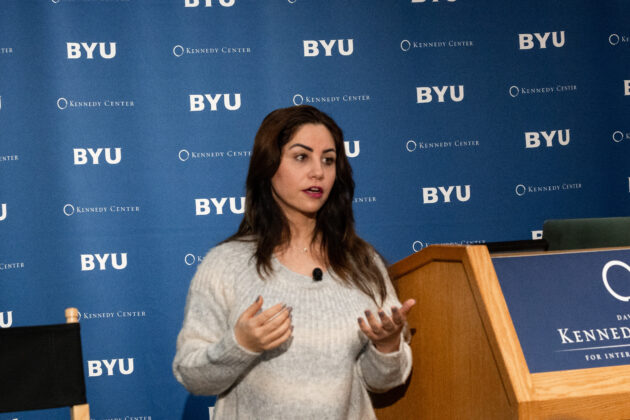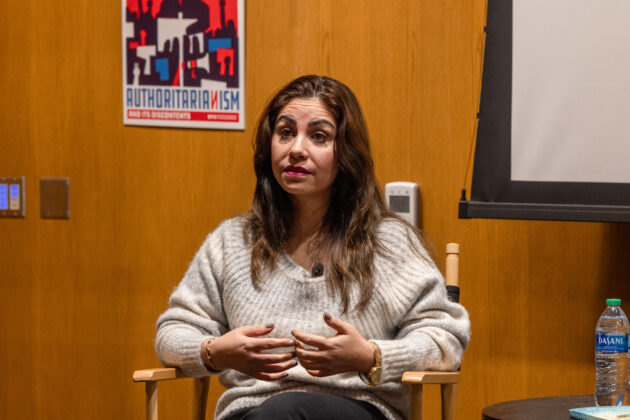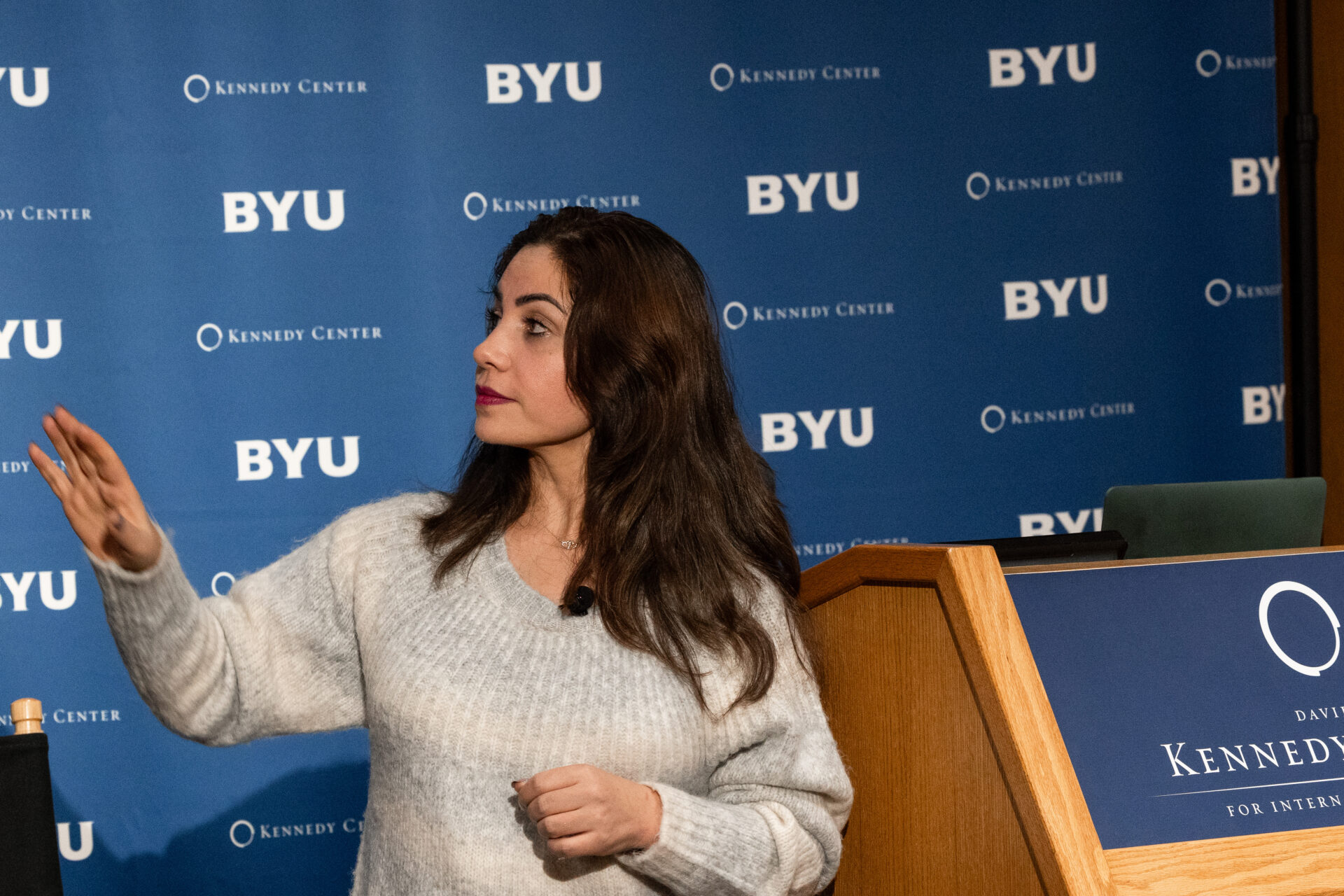
Women’s rights activist and writer Homeira Qaderi spoke at the BYU Kennedy Center on Jan. 31, focusing her remarks on the struggles of Afghan women and inviting the BYU community to support Afghan refugees.
Qaderi grew up in Taliban-controlled Afghanistan, she said. During her adolescence, she defied the Taliban by teaching her friends to read and write, and later went on to challenge the customs of a patriarchal and theocratic society by receiving her own education. Qaderi recently published her memoir, “Dancing in the Mosque.”
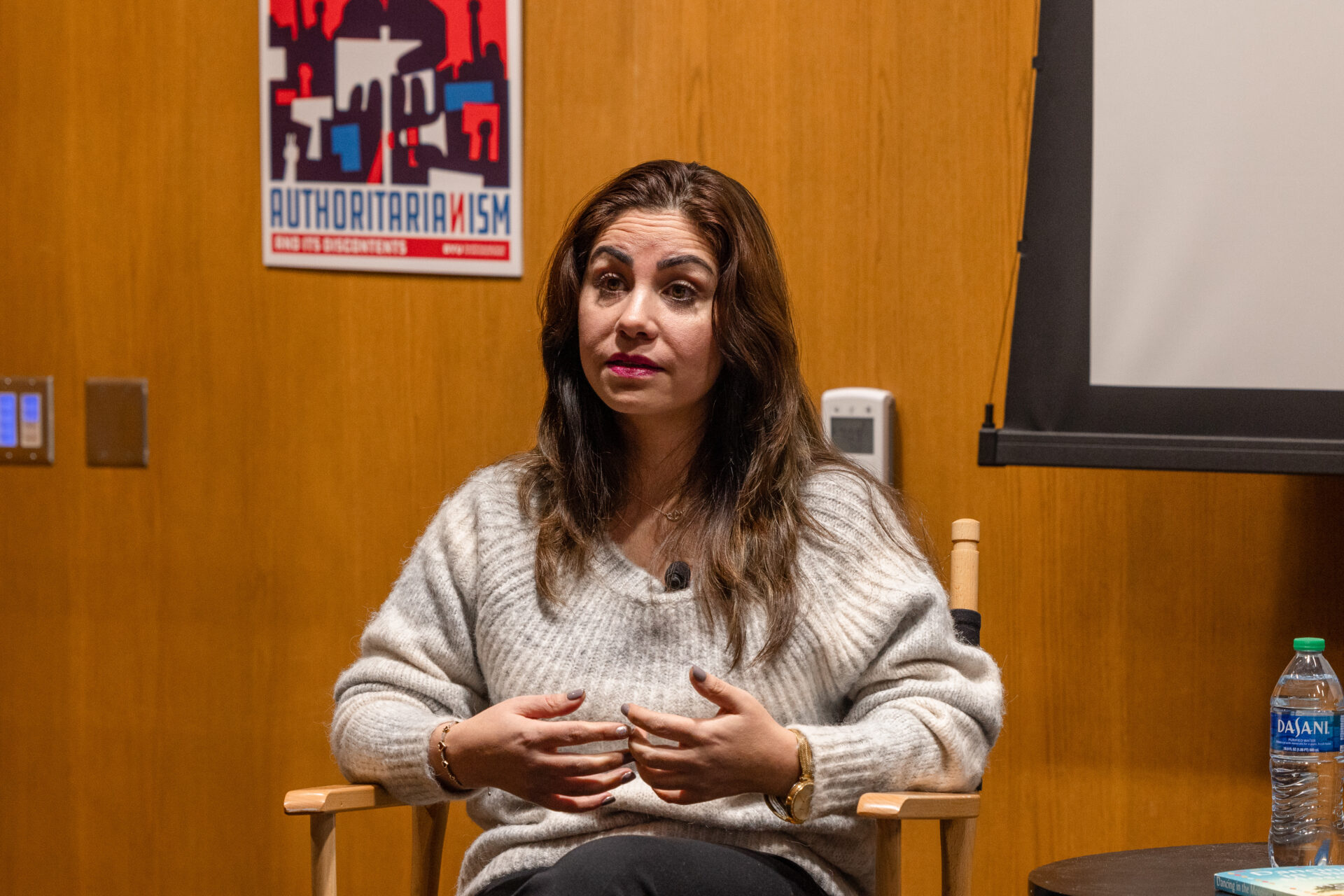
Qaderi shared the horrors and tragedies she and her family lived through at the hands of the Taliban. She also talked about the efforts they have made and are making to promote education and stand for human rights.
As a teenager, Qaderi taught school to children in a tent mosque. Under Taliban control, education for women and girls is severely limited, she said.
The title of Qaderi’s book came from one instance when the Taliban caught them dancing in the mosque. Qaderi lied, telling the men they were studying the Quran and that they had to spin around as punishment for reciting their verses wrong.
After that experience, Qaderi left Afghanistan to continue her education. Qaderi continues to stand for women’s rights, though she has found it difficult.
“Being a woman from Afghanistan is not easy,” Qaderi said.
Qaderi invited audience members to find ways to help Afghan women and refugees by admitting Afghan students into the school and supporting them in every way possible.
Education gives us power to avoid future problems and prevent repeating history, she said.
“Sometimes we need to read our stories or our history again,” she said.
Jenet Erickson, an associate professor in the Department of Church History and Doctrine, attended the event. She said she felt very impacted by Qaderi’s words.
“The stories awaken us to something beyond ourselves,” Erickson said. The BYU community has a responsibility to help and bless others through education, she said.
Shamail Tawana Nasiri, a student from Afghanistan studying at the English Language Center, said she knew who Qaderi was because of her books and activism, and said she was inspired by Qaderi’s remarks.
“It was very good motivation,” Nasiri said.
Nasiri said she values her education. After earning a master’s degree, she felt it was her duty to continue her education. Nasir moved to the U.S. five months ago to study English.
Nasiri is part of a group that protests the Taliban and advocates for women’s rights. The group publishes news about women in Afghanistan that the Taliban would not allow to be published.
“It is my goal (that) the world should know about this situation with women in Afghanistan,” Nasiri said.
To learn about future lectures, interested readers can look through the Kennedy Center’s schedule on their website.

